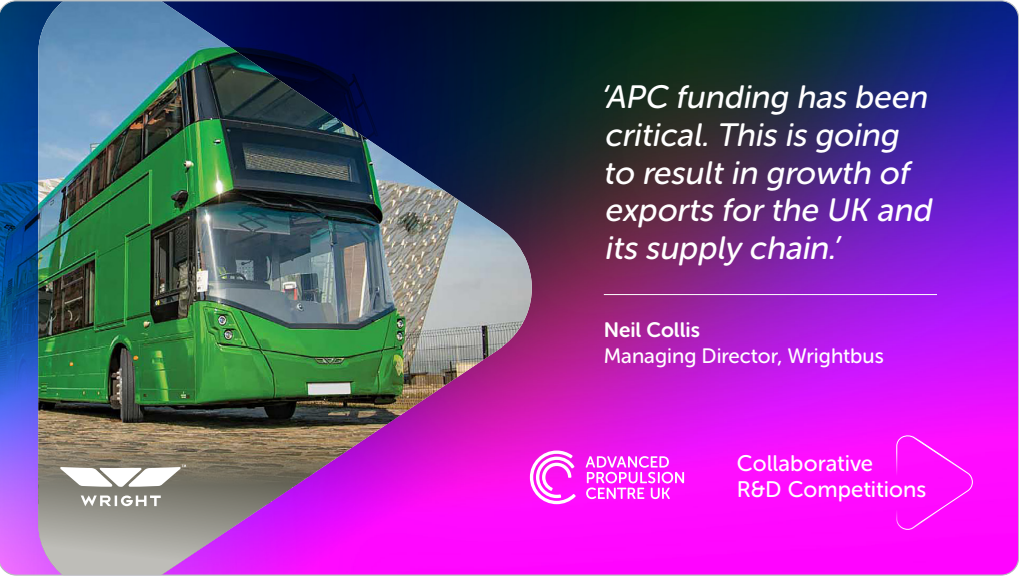The green Wrightbus: a UK export success story
Wrightbus built the world’s first double decker hydrogen fuel cell bus, and now has fleets operating in five cities across the UK and Ireland.
“We have buses in Aberdeen, Birmingham, London, Belfast, and Dublin. They have now covered more than a million miles and saved 1,600 tonnes of CO2,” says Neil Collins, Managing Director of Wrightbus.
The demand for low-carbon buses is completely transforming the way Wrightbus is approaching its business.
“In 2021, 70% of what we built was diesel. In 2022, 70% of what we build will be zero emissions. So that’s a big change in our industry,” explains Collins.
Low-carbon revolution
Although Wrightbus built its first zero-emission electric vehicle over 20 years ago, it now recognises the industry is going through nothing short of a low-carbon revolution.
“The shift from diesel Euro 6 to a zero-emission hydrogen fuel cell is probably the largest technological shift in the industry since we moved from the horse and cart to the bus,” says Andy Harris, Engineering Analyst at Wrightbus.
However, Wrightbus haven’t just taken one of its existing diesel bus designs and adapted it to accommodate a hydrogen fuel cell system, the team have designed a brand-new modular and lightweight platform to deliver the best possible performance and passenger experience.
Initiating a major redesign takes time and resources, and so Wrightbus sought support from the Advanced Propulsion Centre (APC), and is currently the lead partner on the NextGen FCEV collaborative research and development project.
Benefits of APC support
“We’re designing [the buses] to be as light as possible, to get better fuel economy whilst carrying more passengers. It’s critical that we get it right at the beginning of the design phase before anything is built,” says Stress Engineer, Michelle Barr. “It’s a massive undertaking. Without the funding from the Advanced Propulsion Centre it wouldn’t have been possible.”
The APC also provided funding for the development of the Wrightbus single deck hydrogen fuel cell concept demonstrator and test vehicle, via the Advanced Route to Market Demonstrator programme (ARMD).
Robert Best, Director of Engineering at Wrightbus, says both APC-supported projects are delivering tangible benefits for Wrightbus, its supply chain, and for the UK as a whole. “It allowed us to produce a prototype vehicle more than a year earlier than we would have been able to do without the funding We now have orders for a significant number of single deck fuel cell vehicles that we probably wouldn’t have had, had it not been for the technology demonstrator programme, supported by the APC.”
“APC funding has been critical,” adds Neil Collins. “We have customers on site today from Germany who are looking at single deck hydrogen buses for Cologne. We are also looking at projects in Singapore, Malaysia, Hong Kong and Australia. This is going to result in growth of exports for the UK and its supply chain, all underpinned by APC funding.”
Find out more about NextGenFCEV, a collaborative research and development programme with Queen’s University Belfast, Grayson Thermal Systems, Translink Northern Ireland & Ryse Hydrogen.

Road to Net Zero Podcast
Our Road to Net Zero podcast is all about how the UK automotive industry is transitioning to net zero. In a series of interviews, we highlight key issues and developments, interesting projects and technologies emerging from one of the UK’s most innovative sectors on the road to net zero.